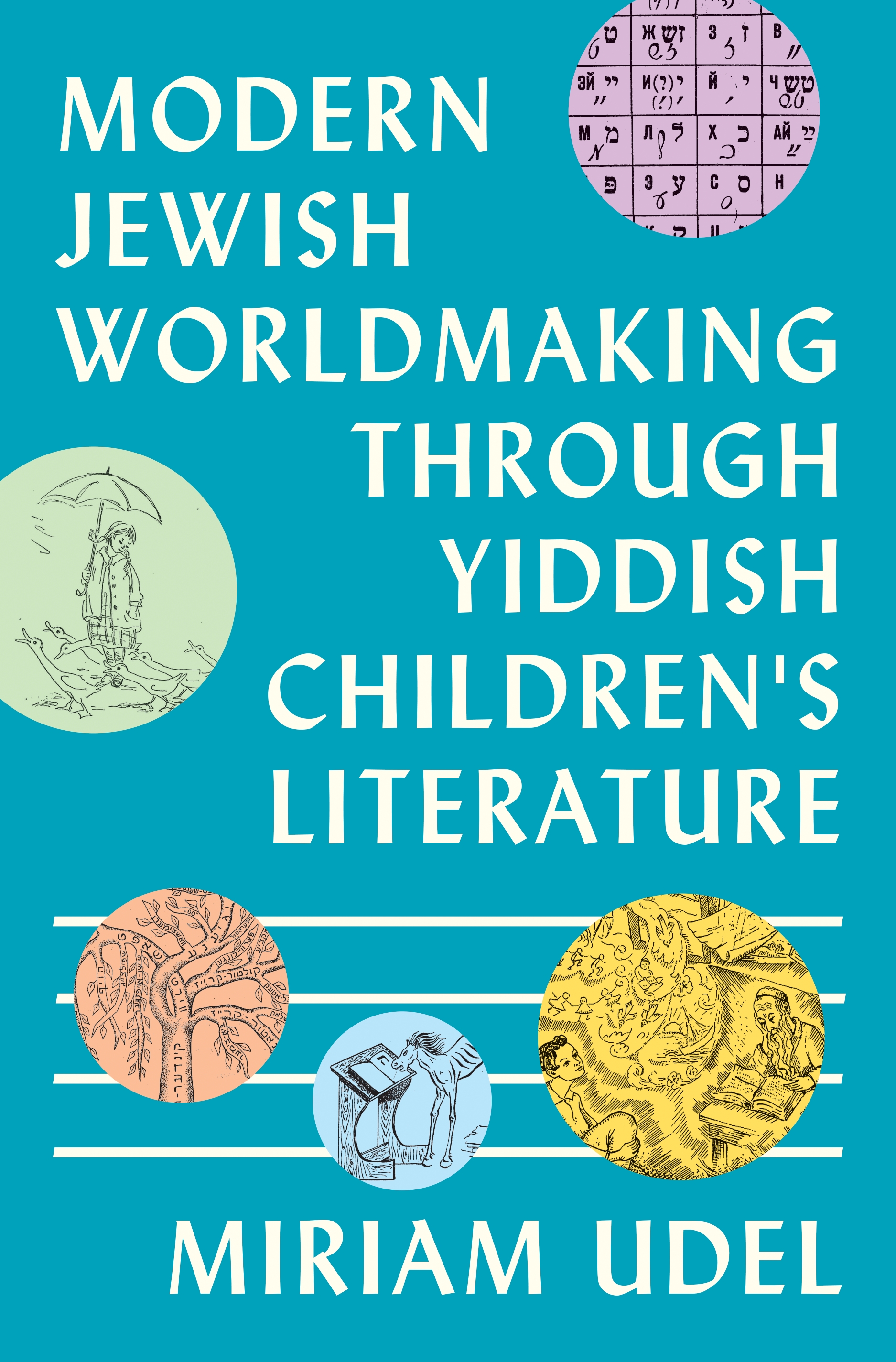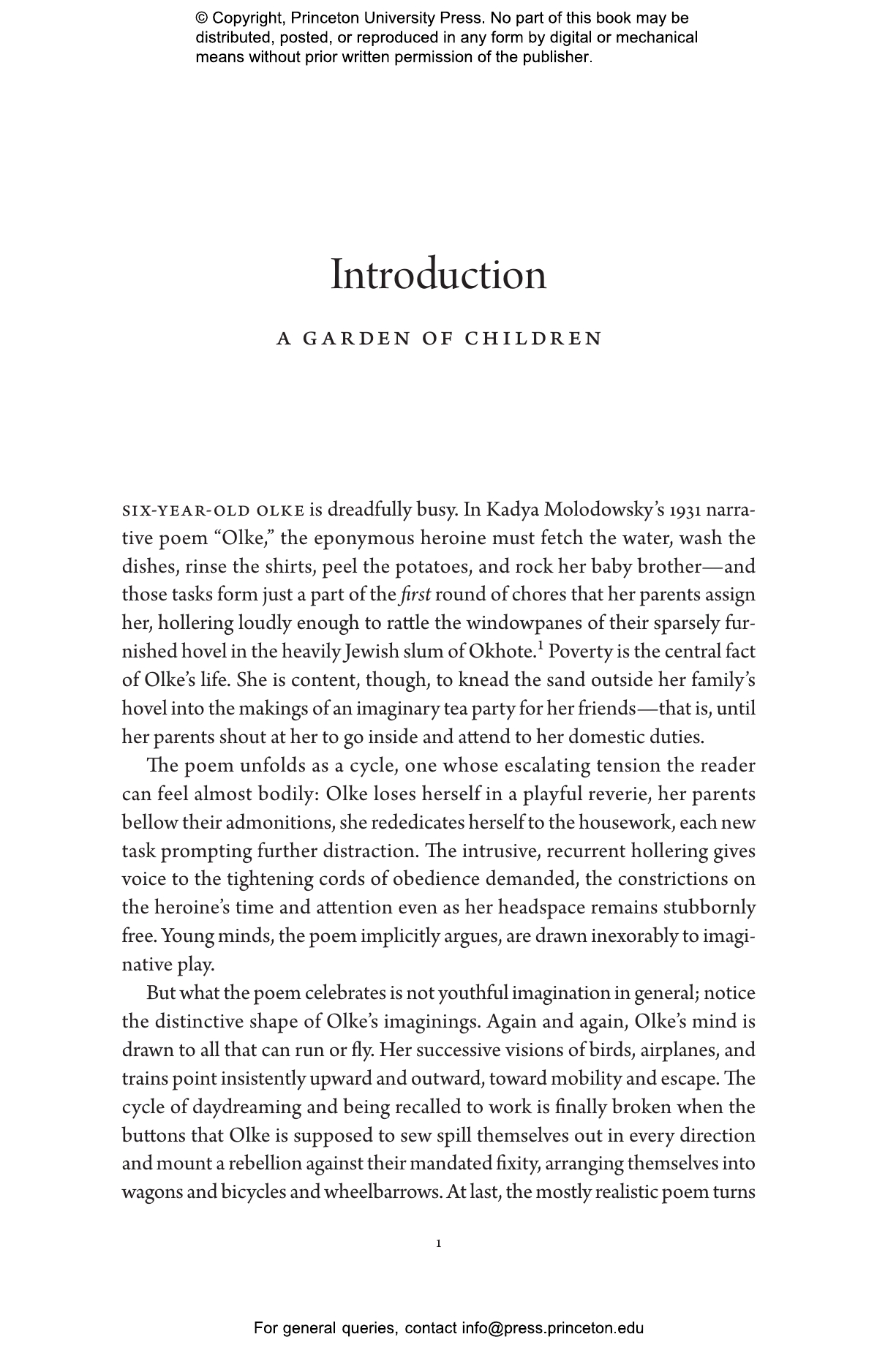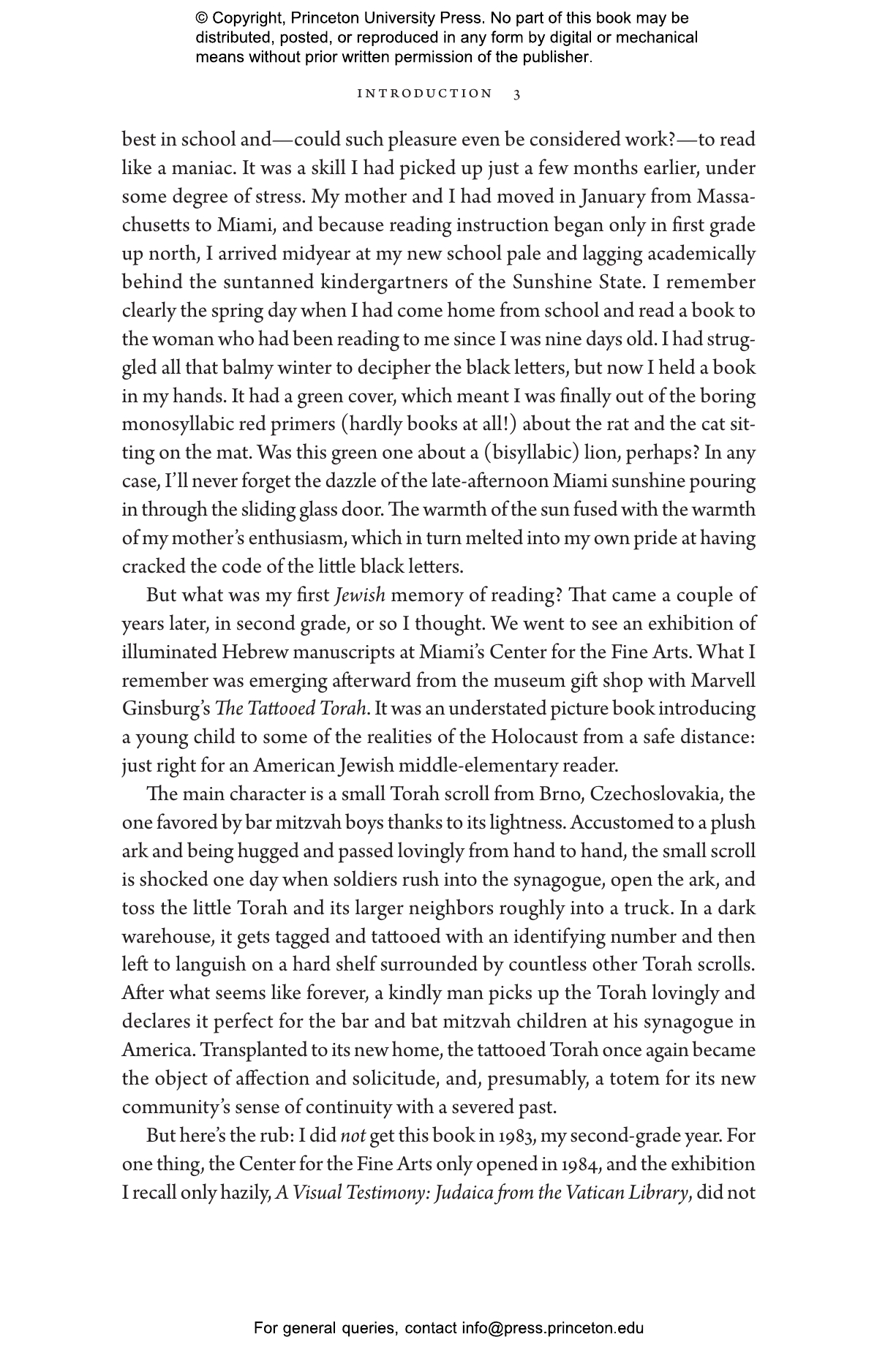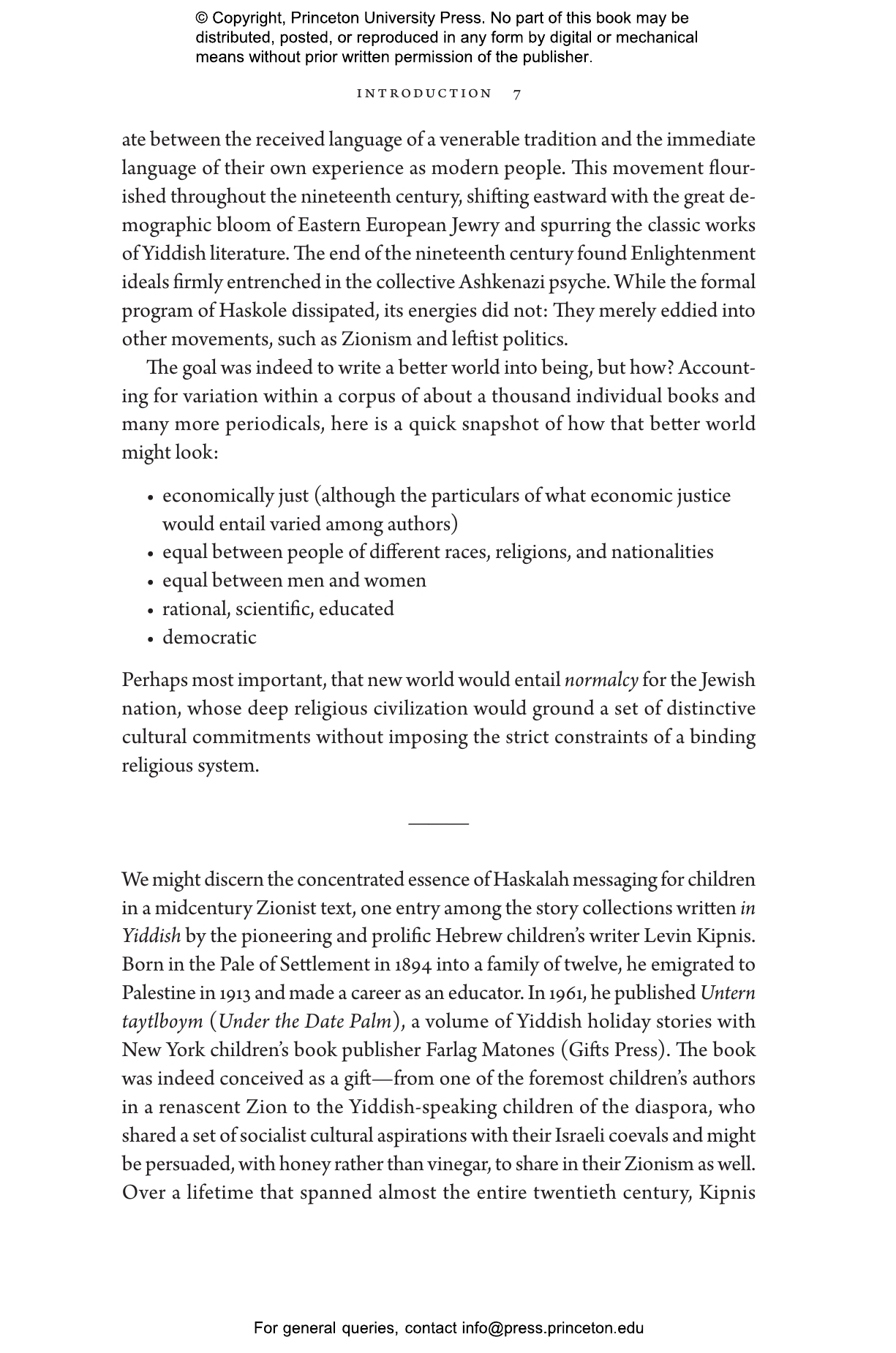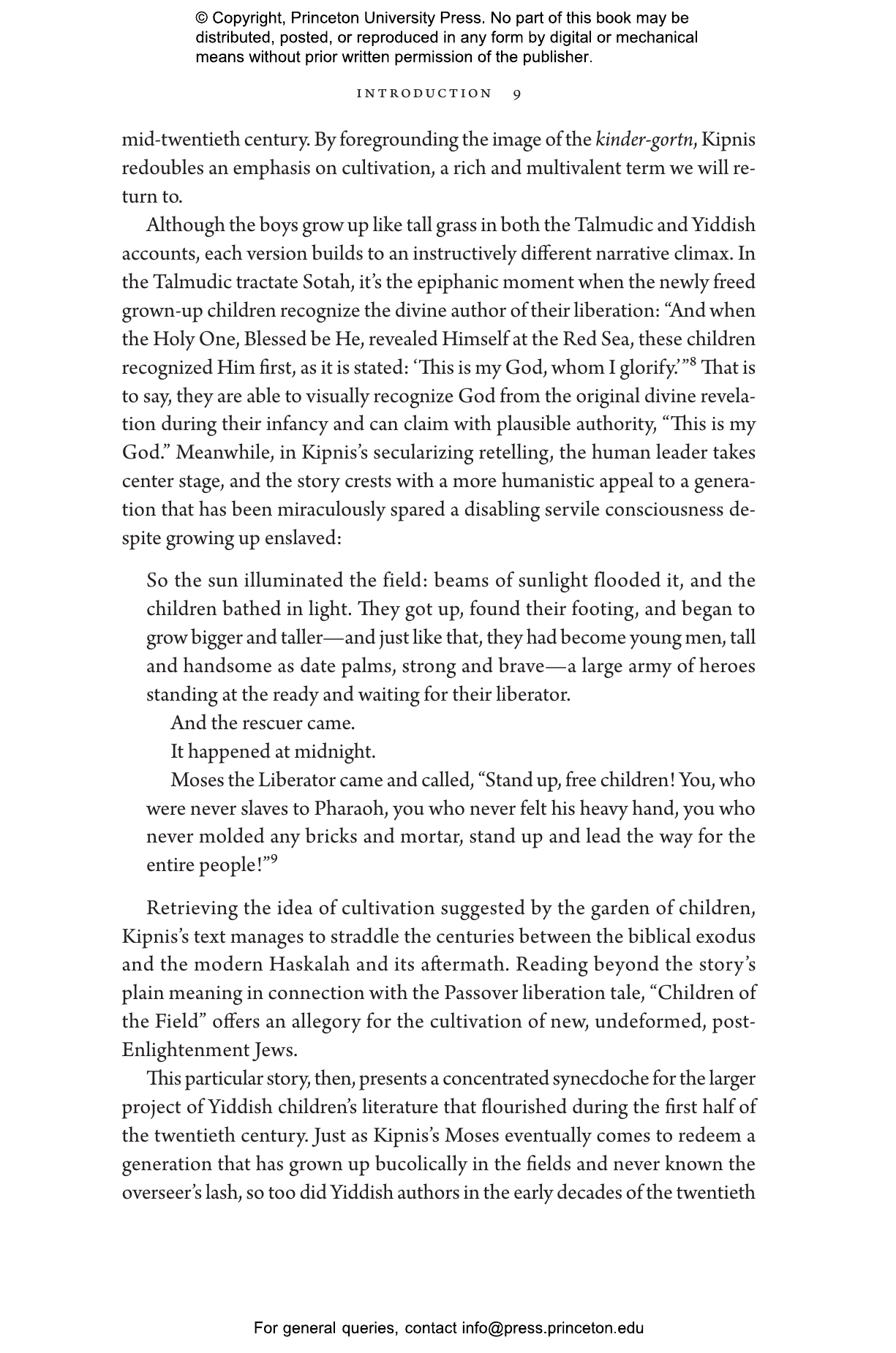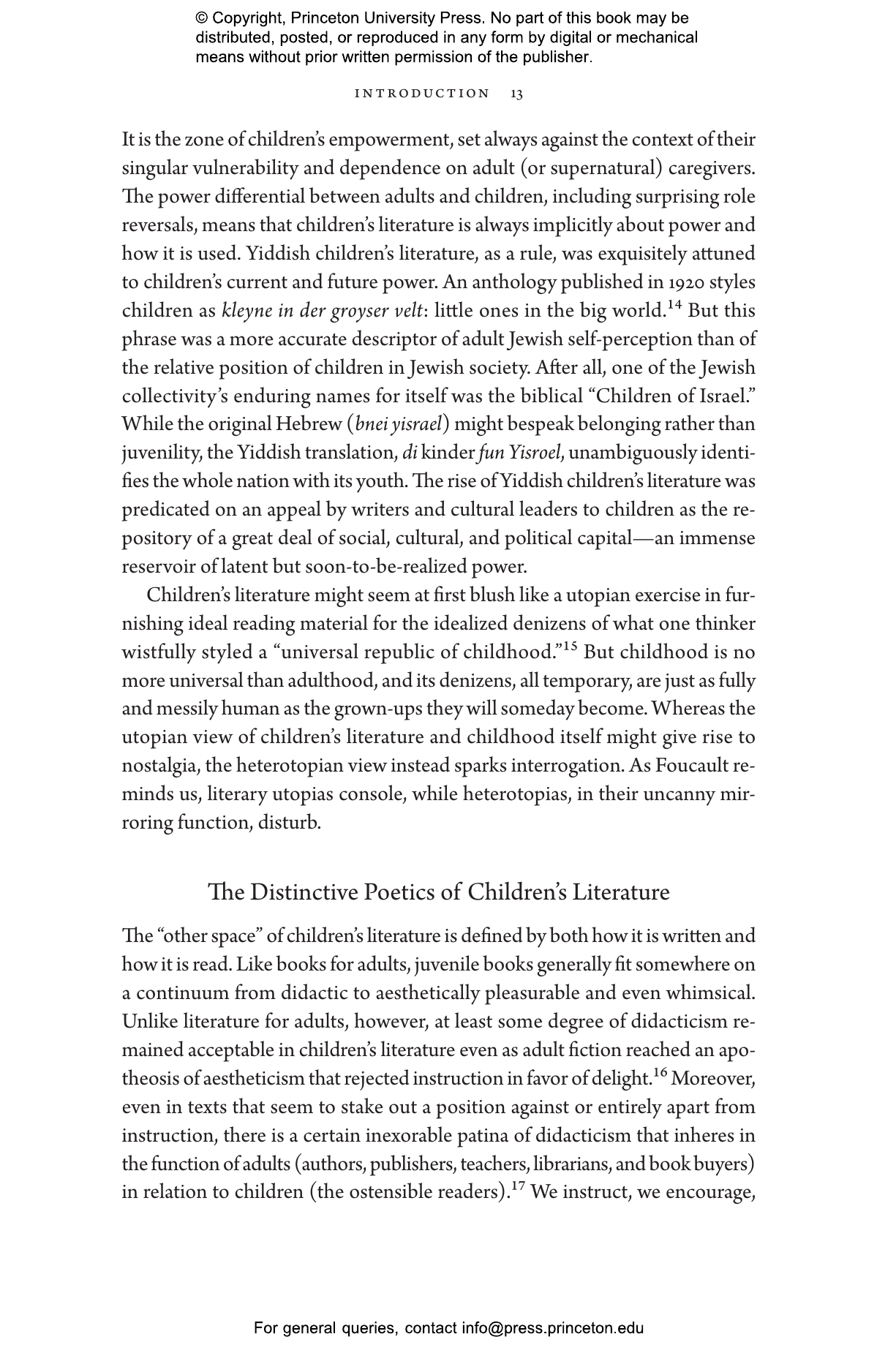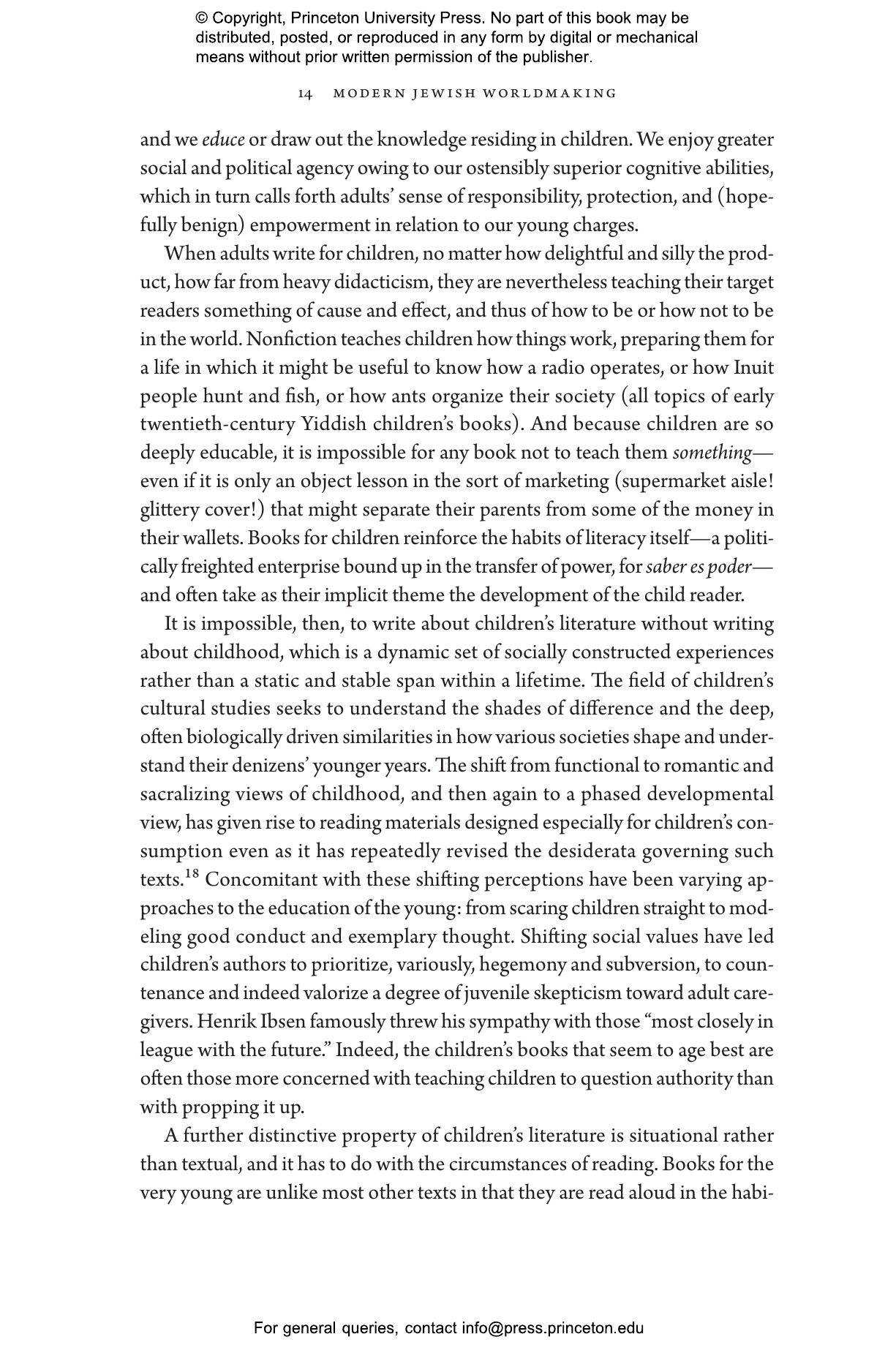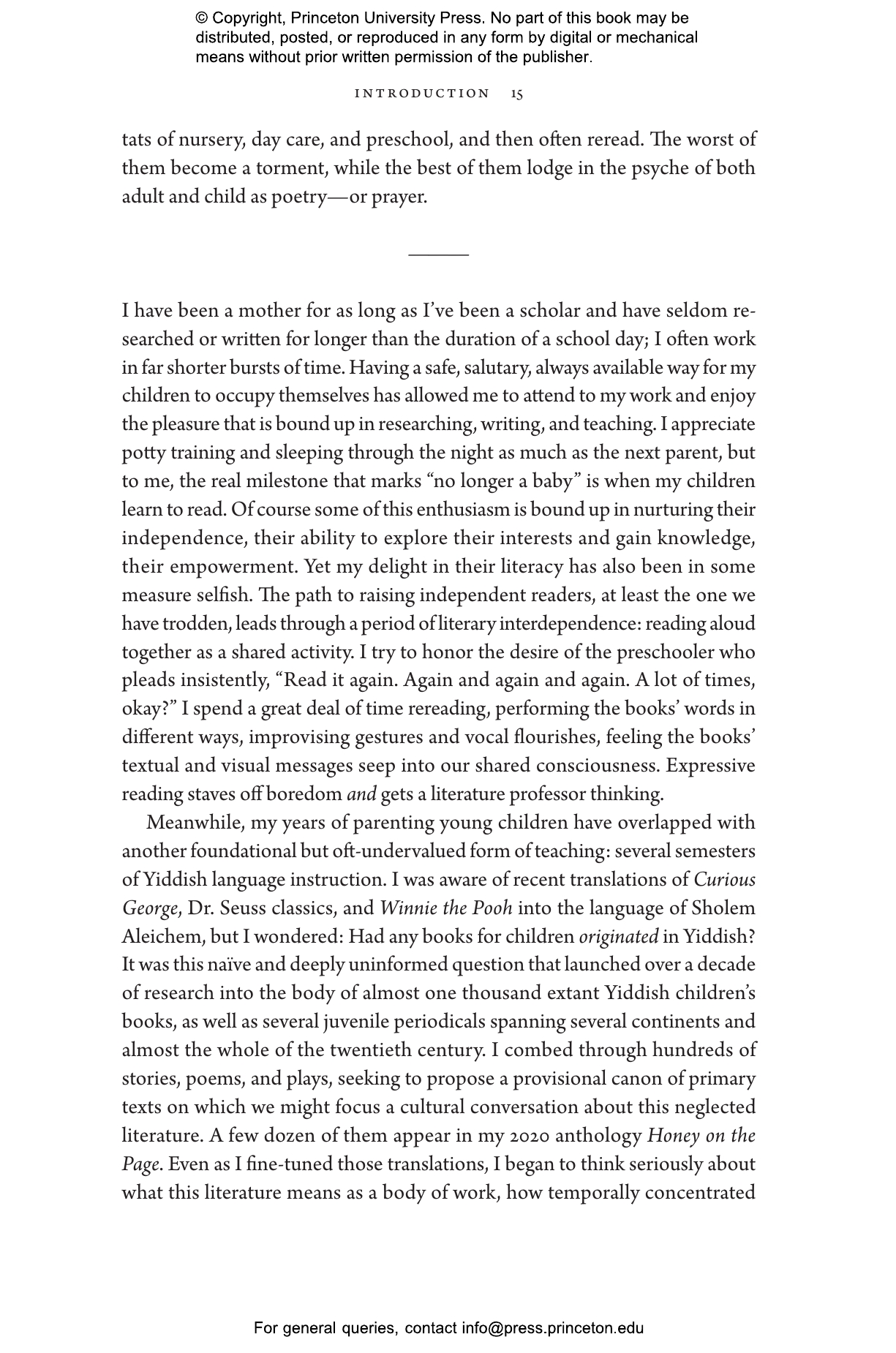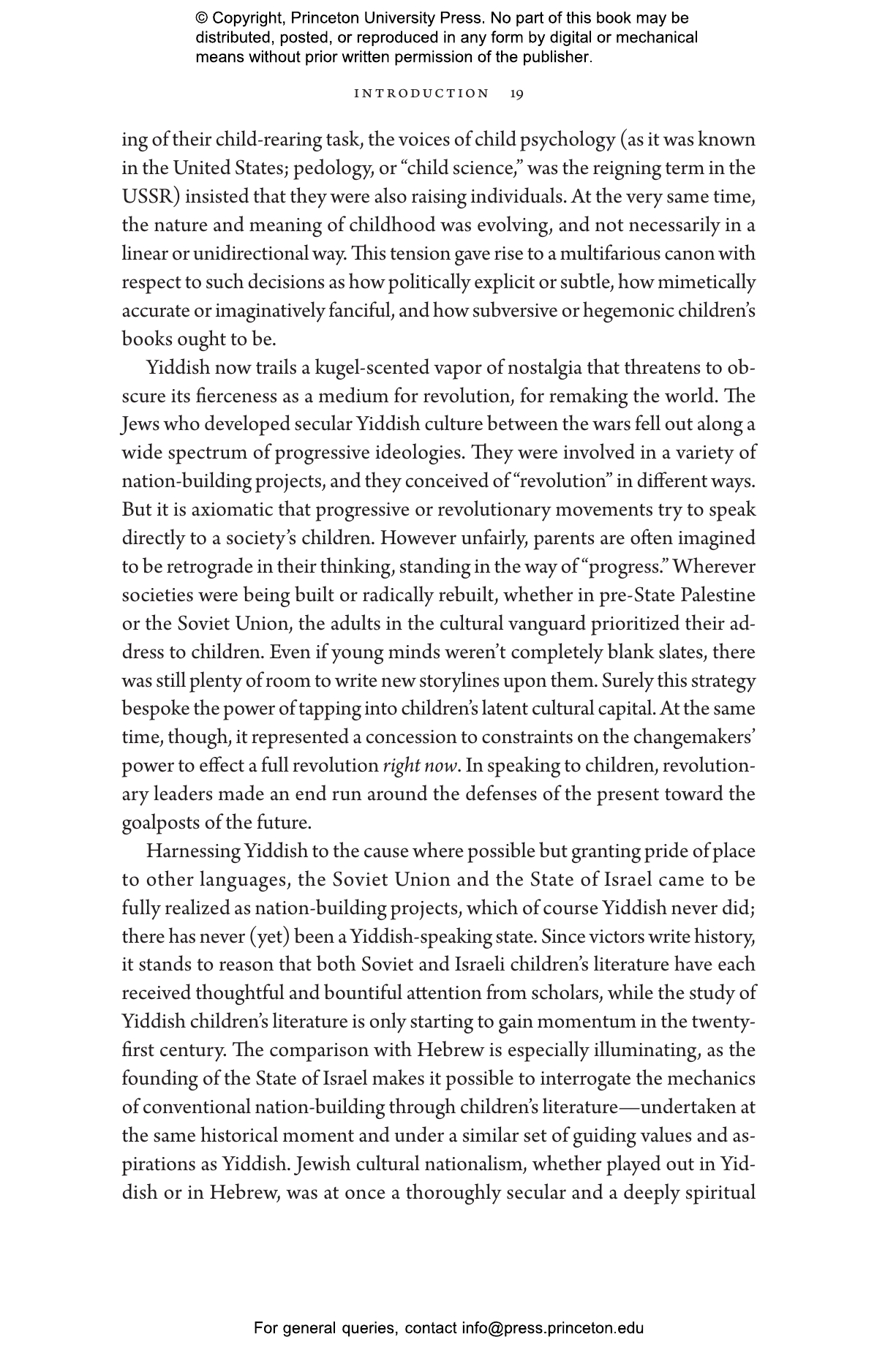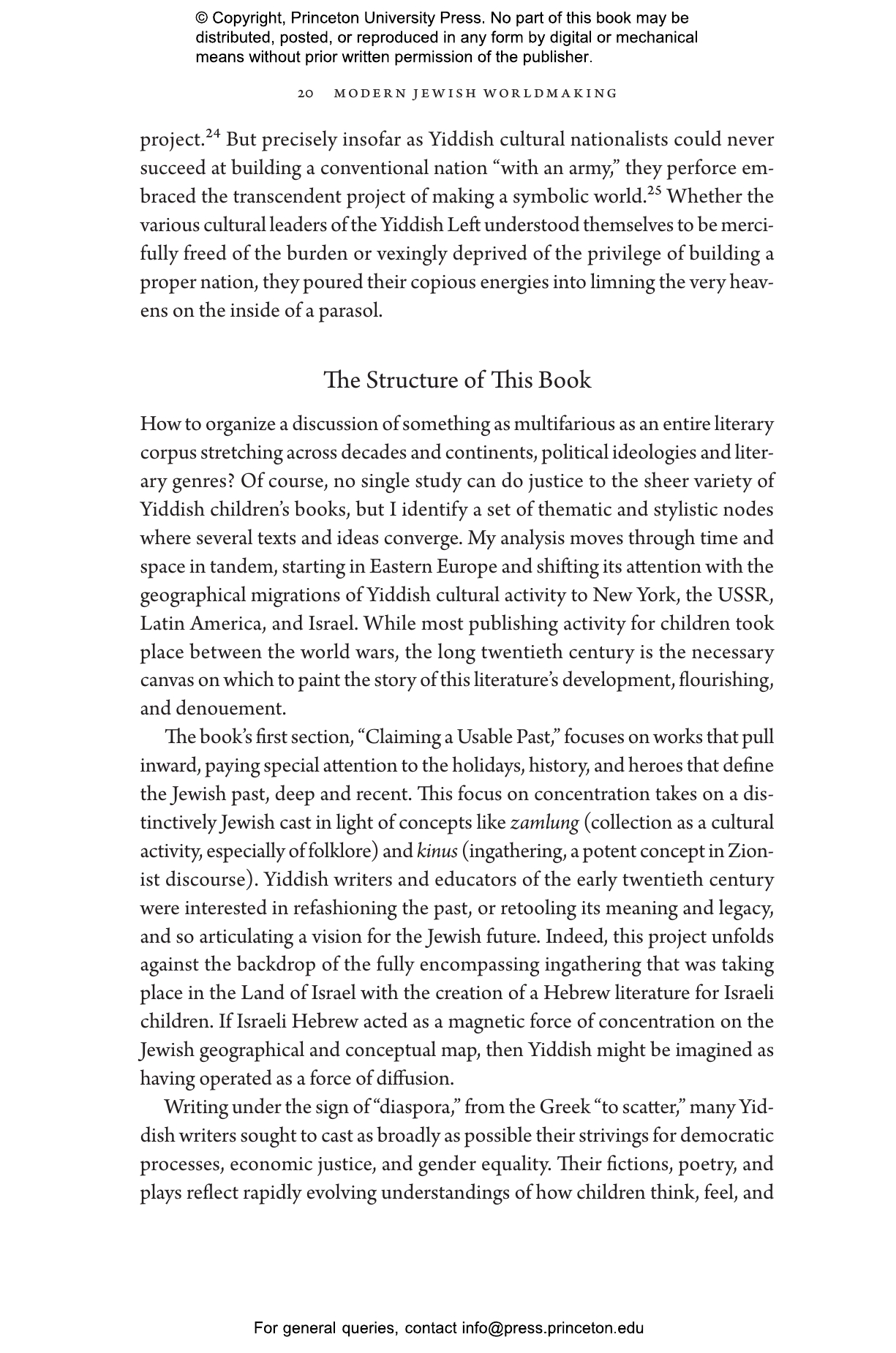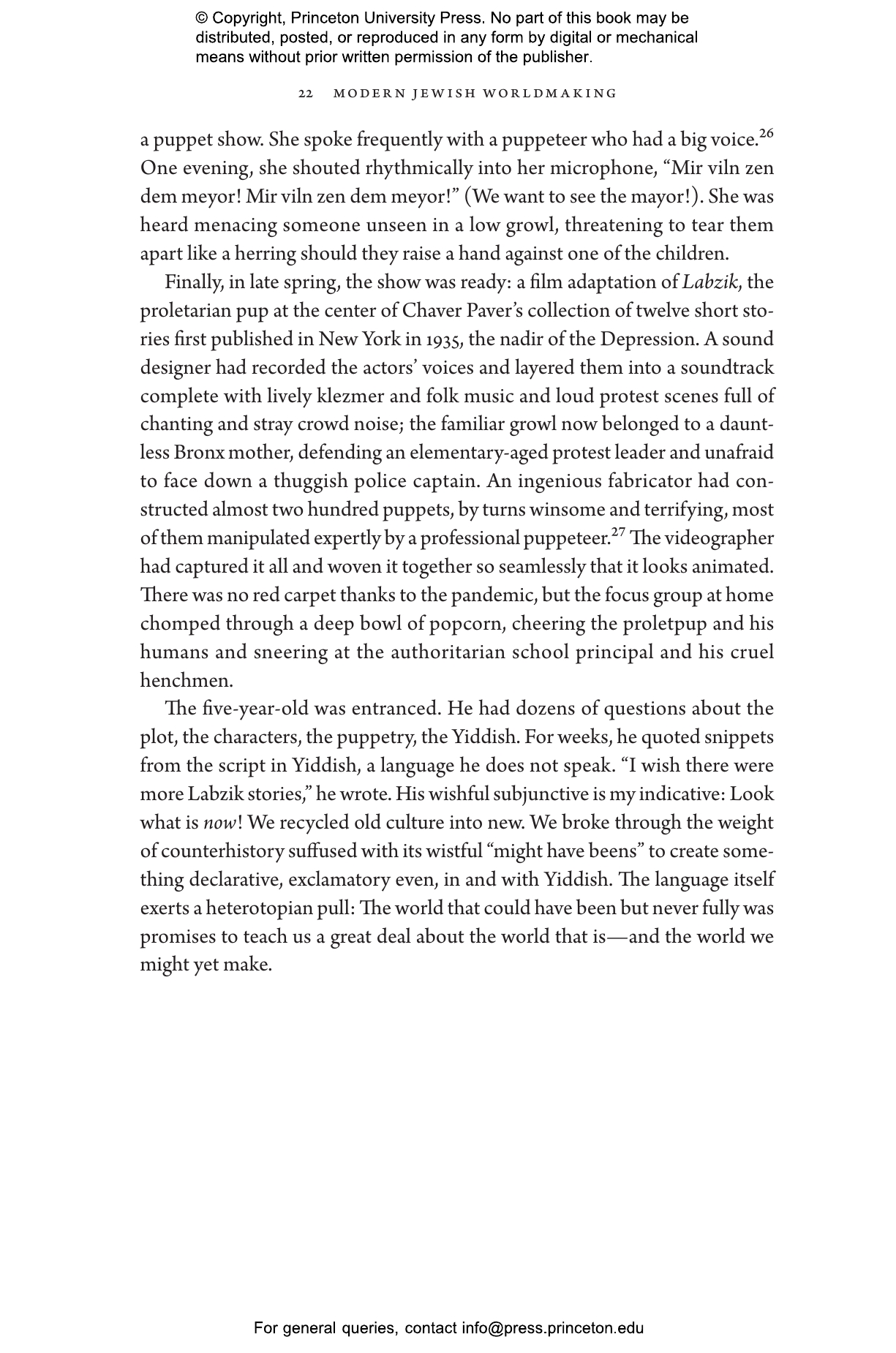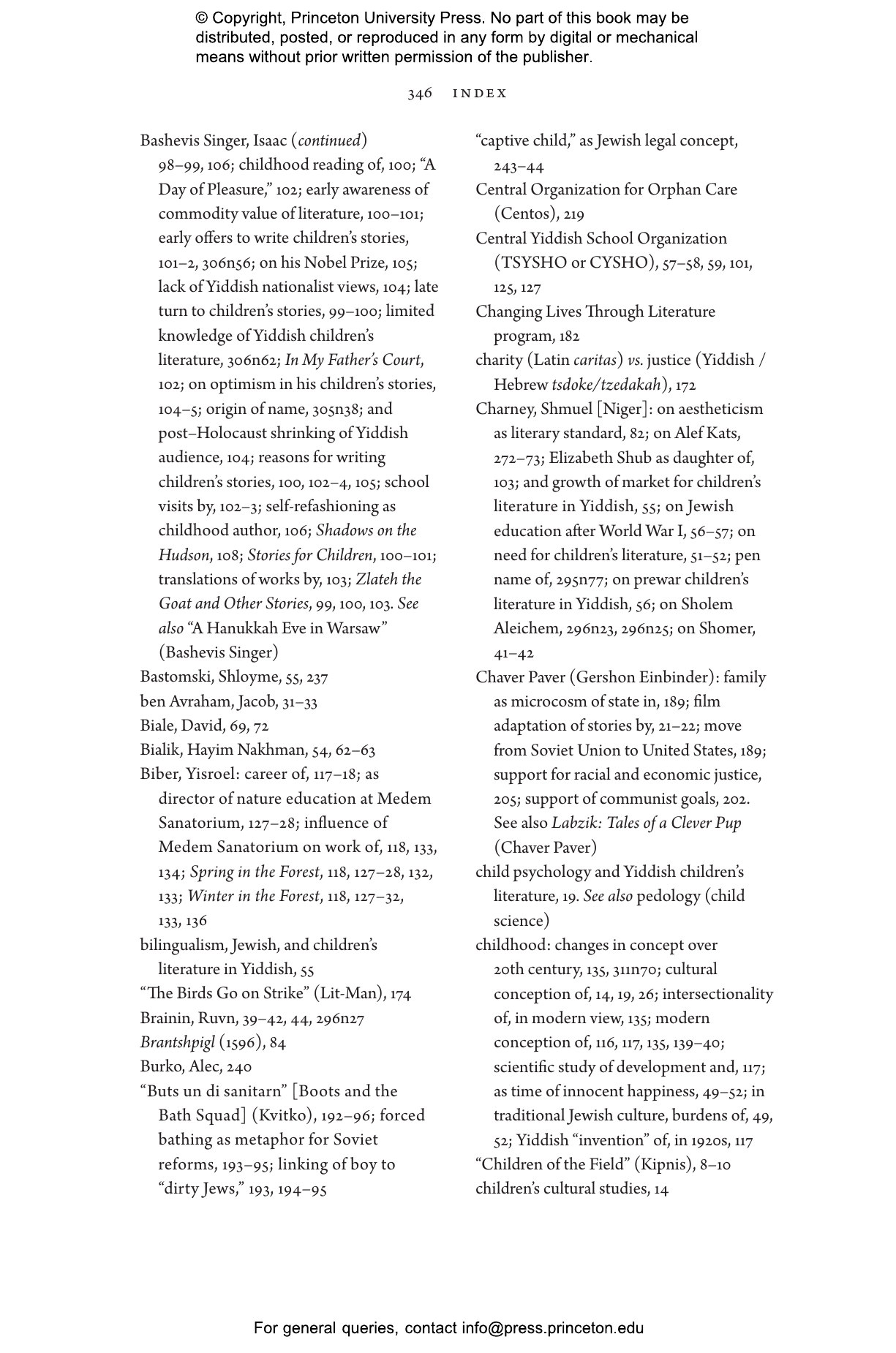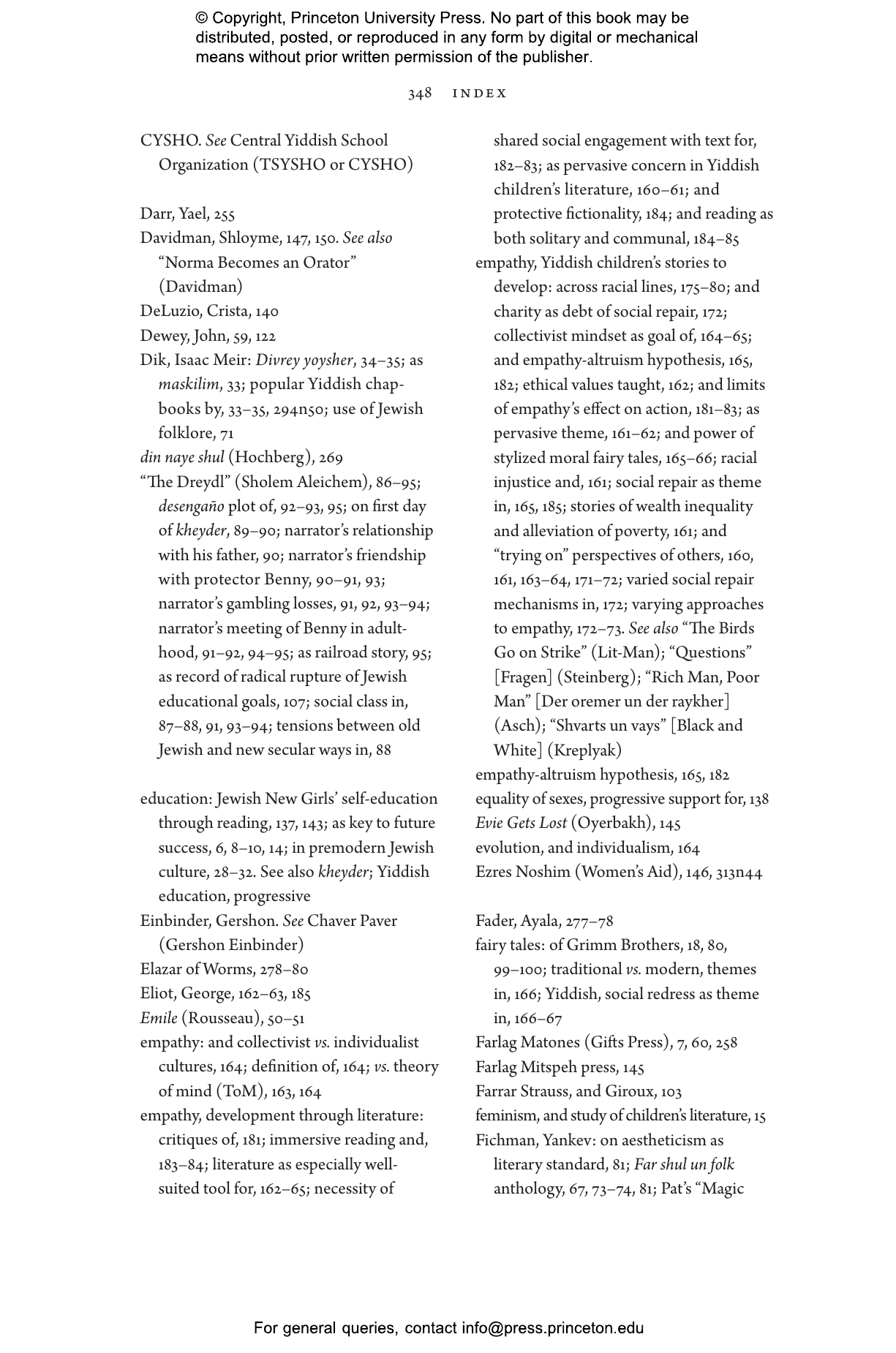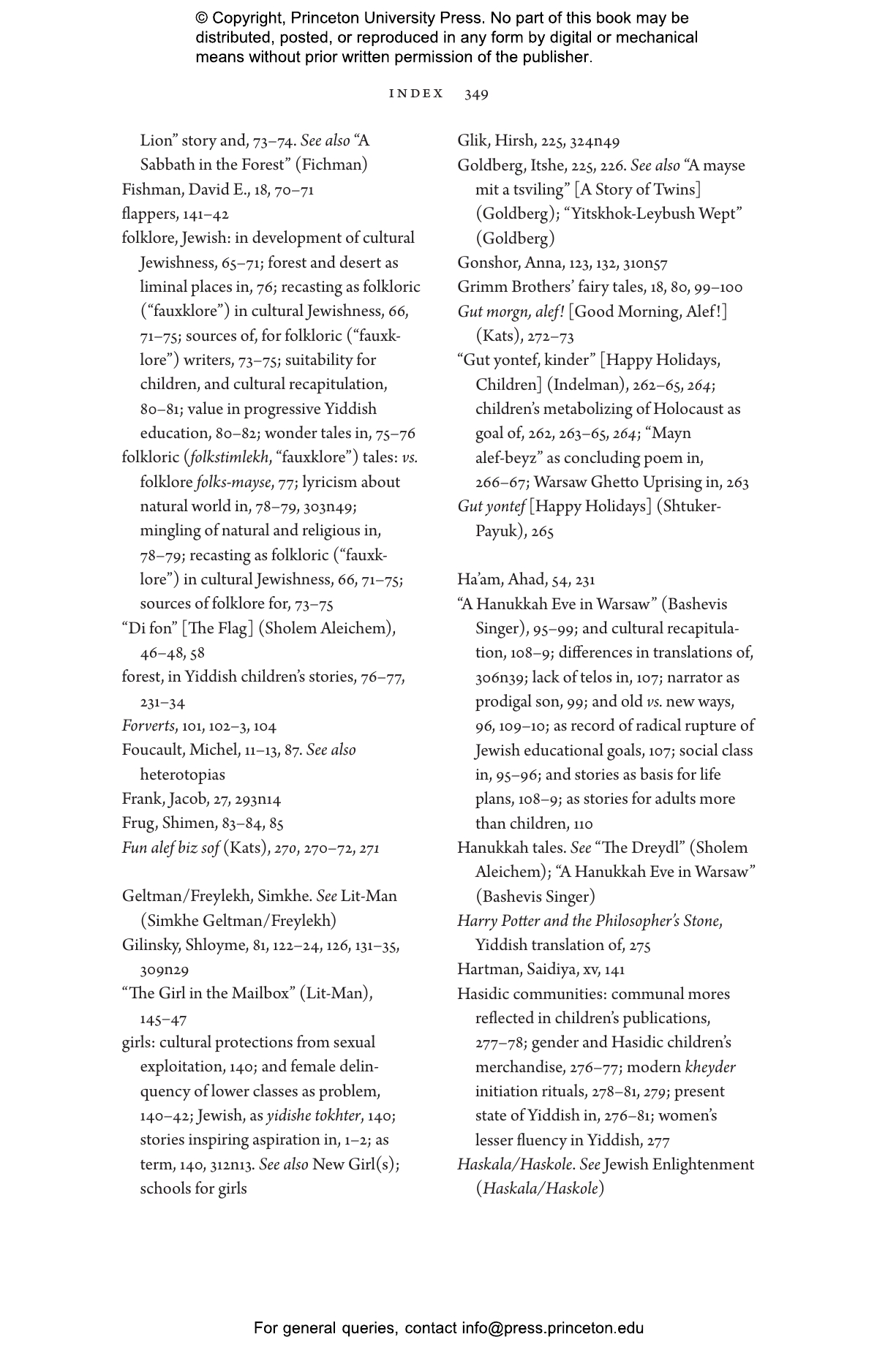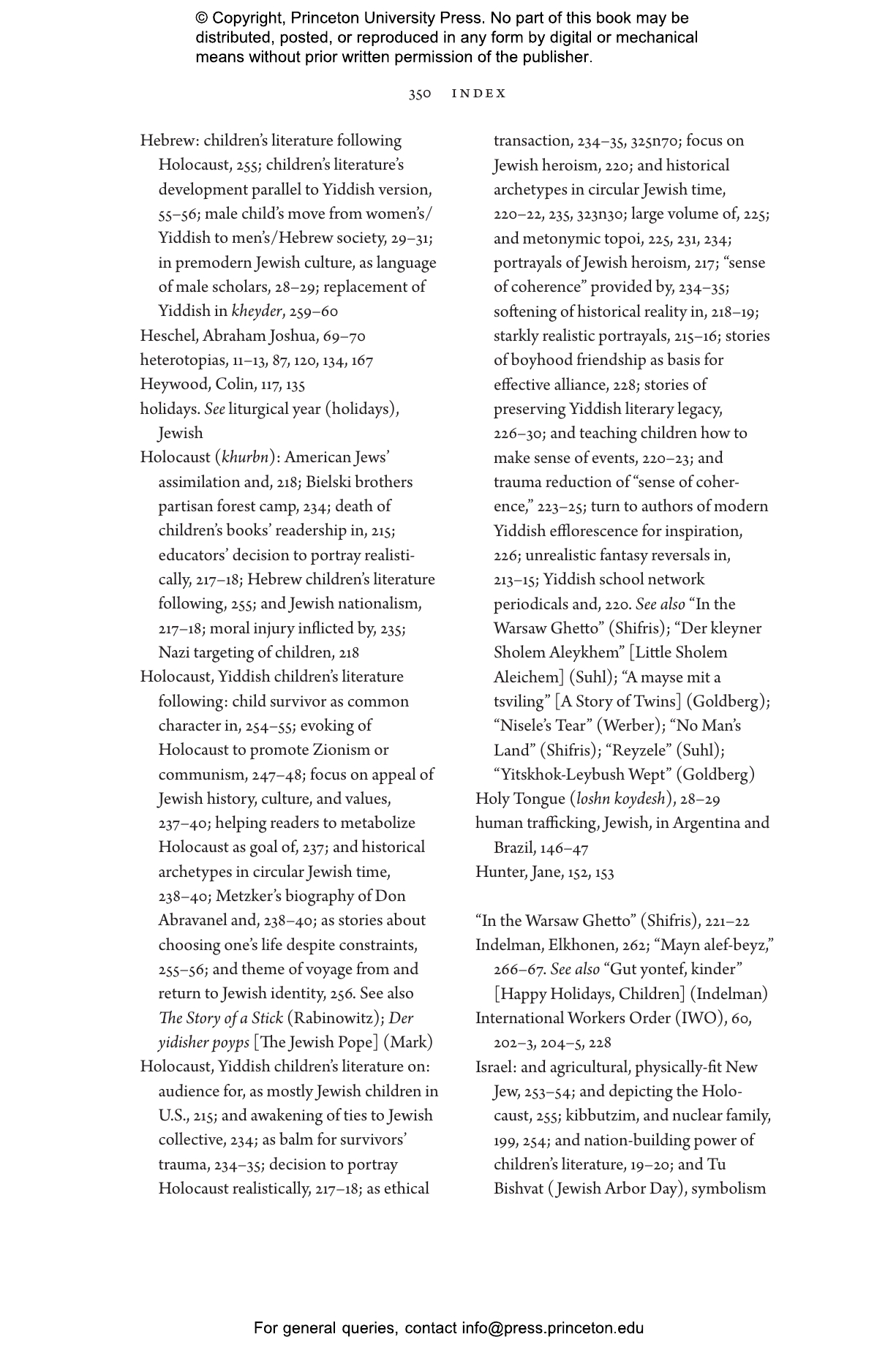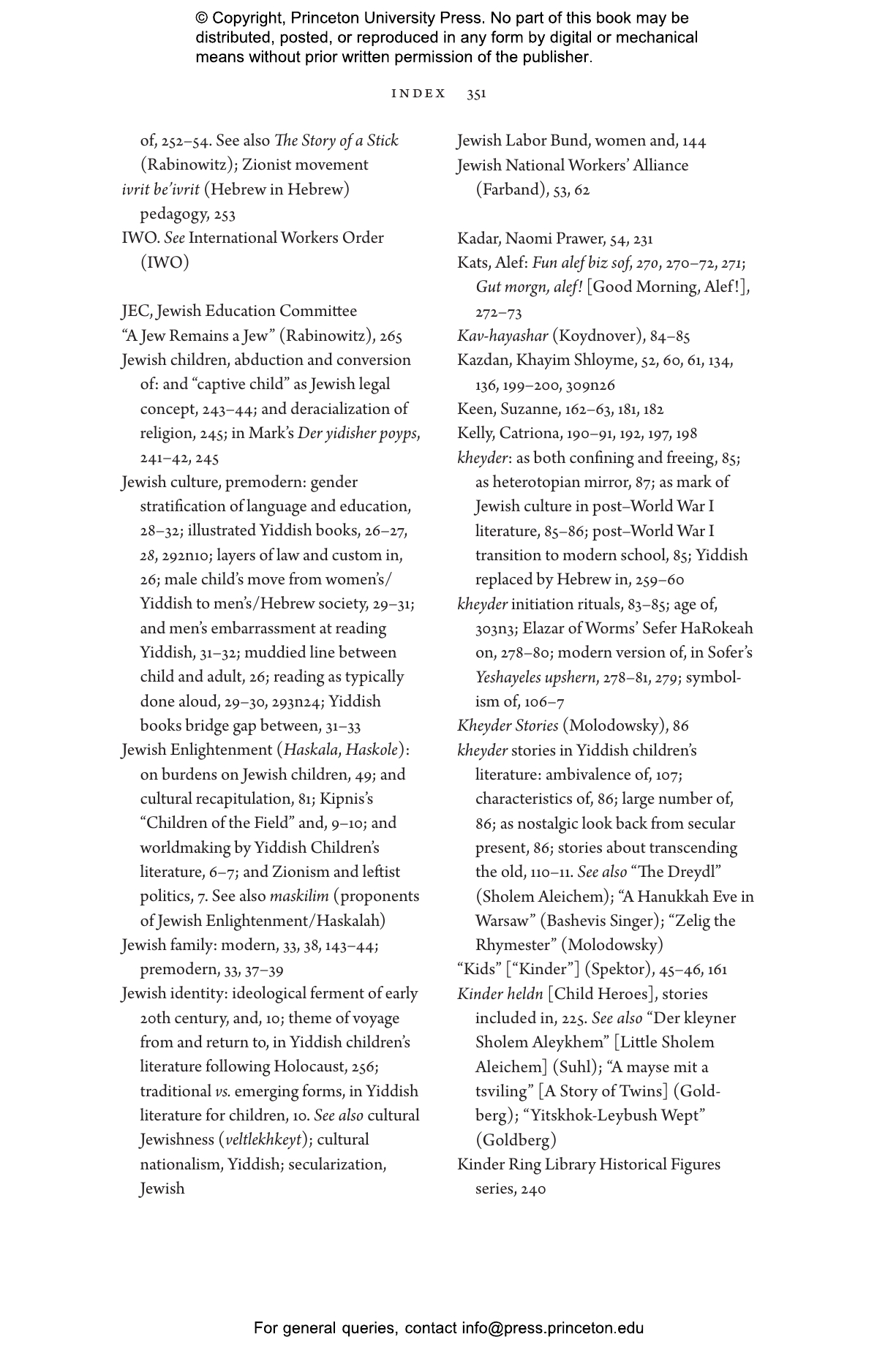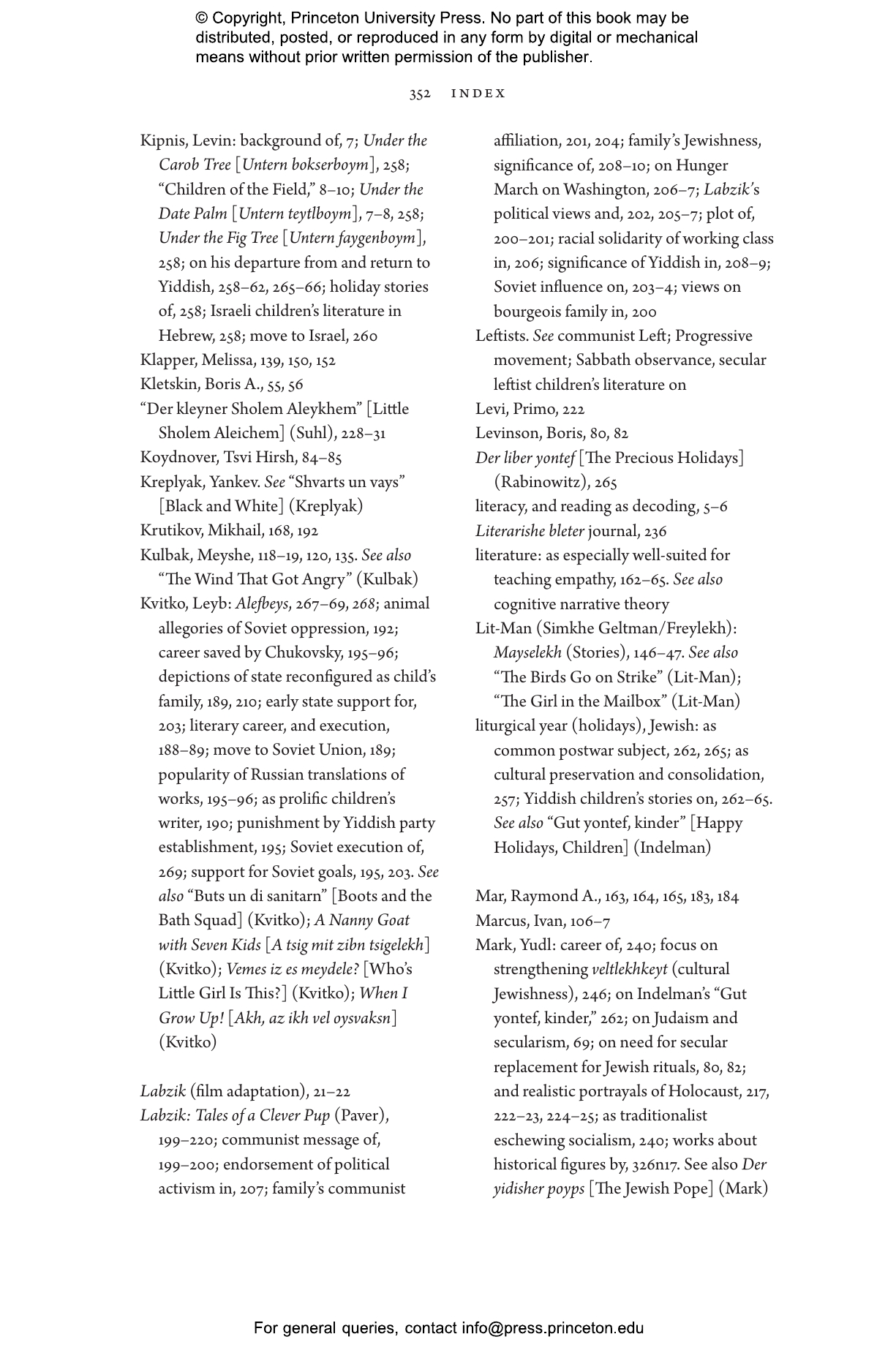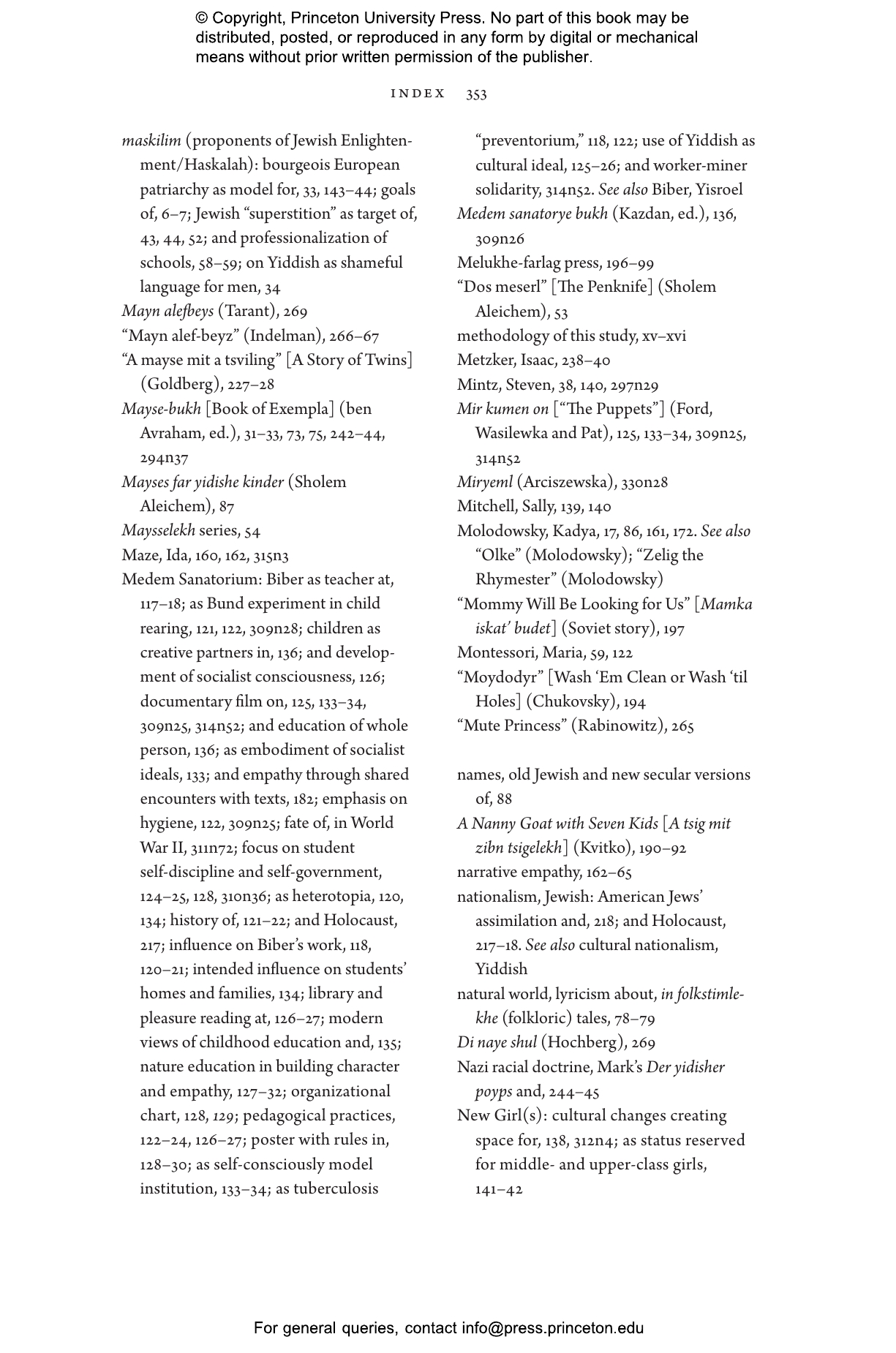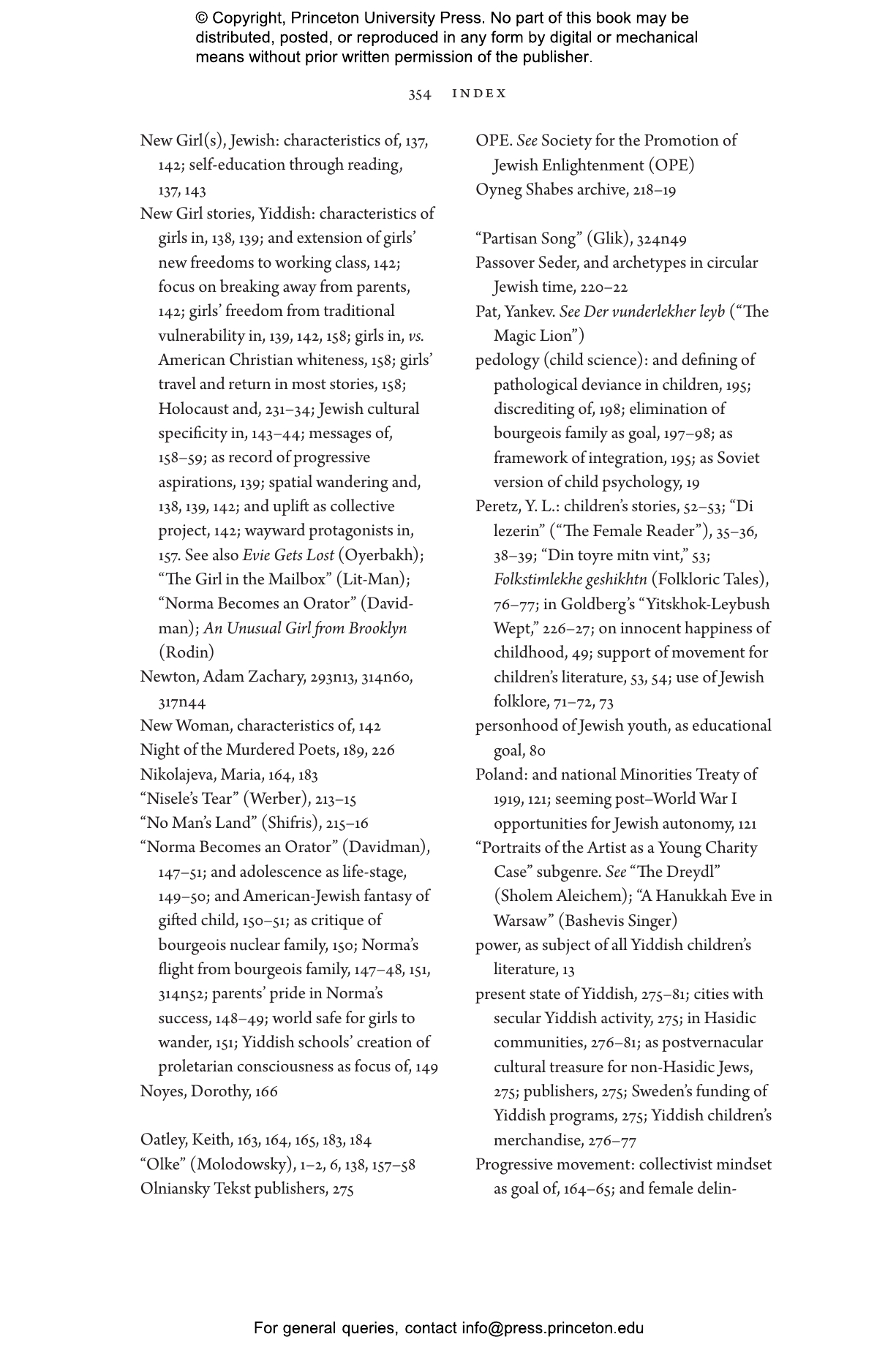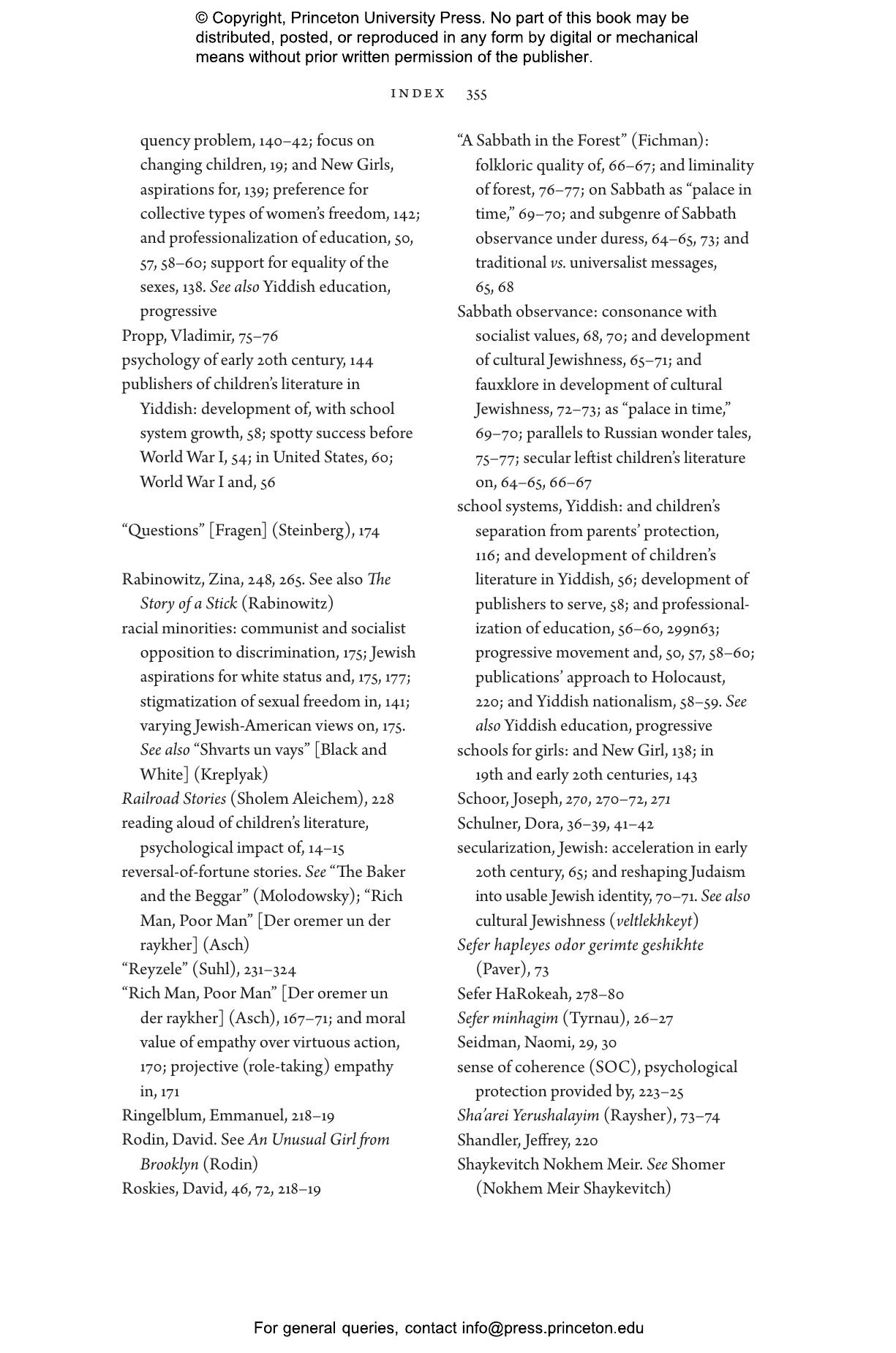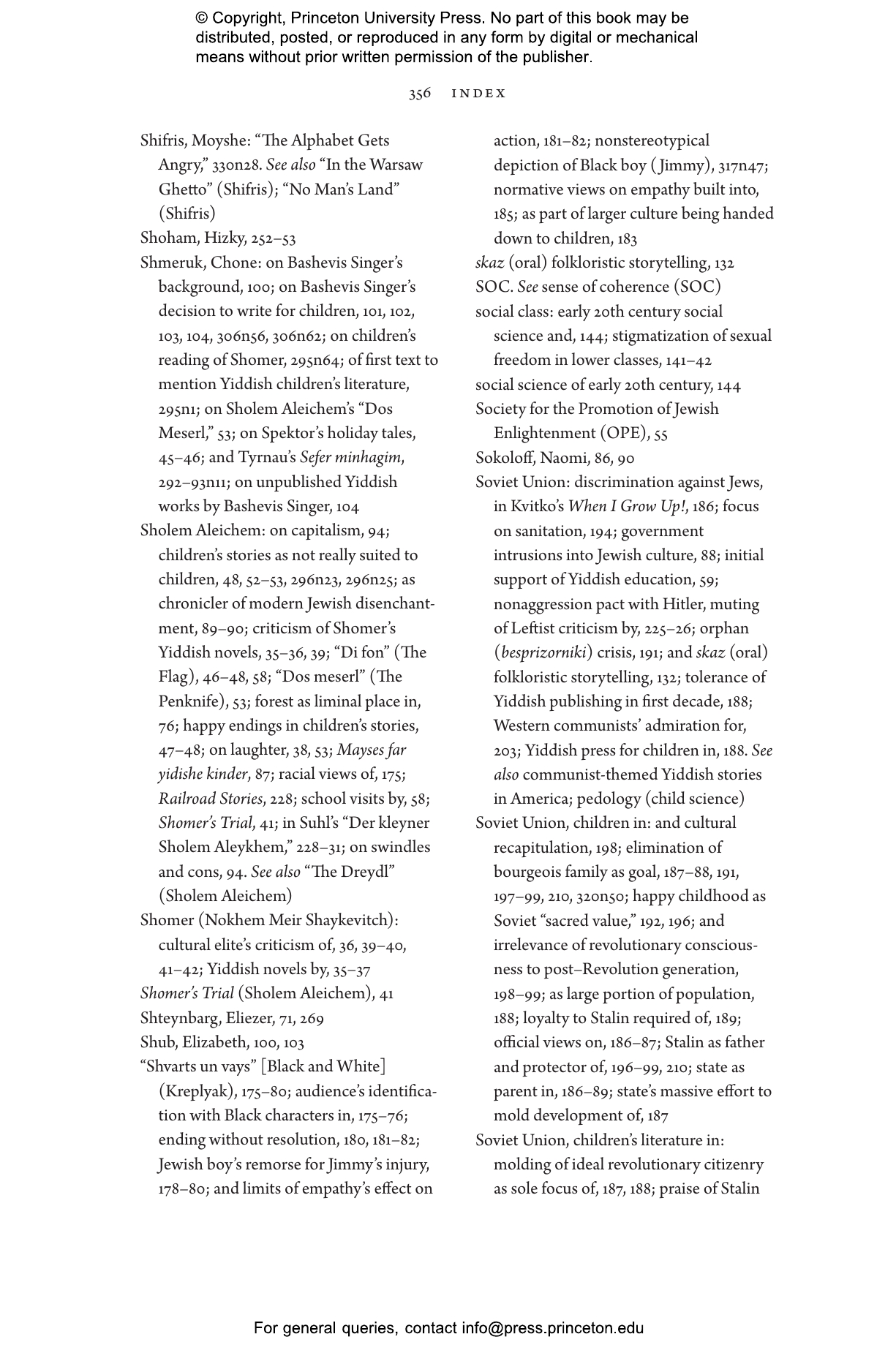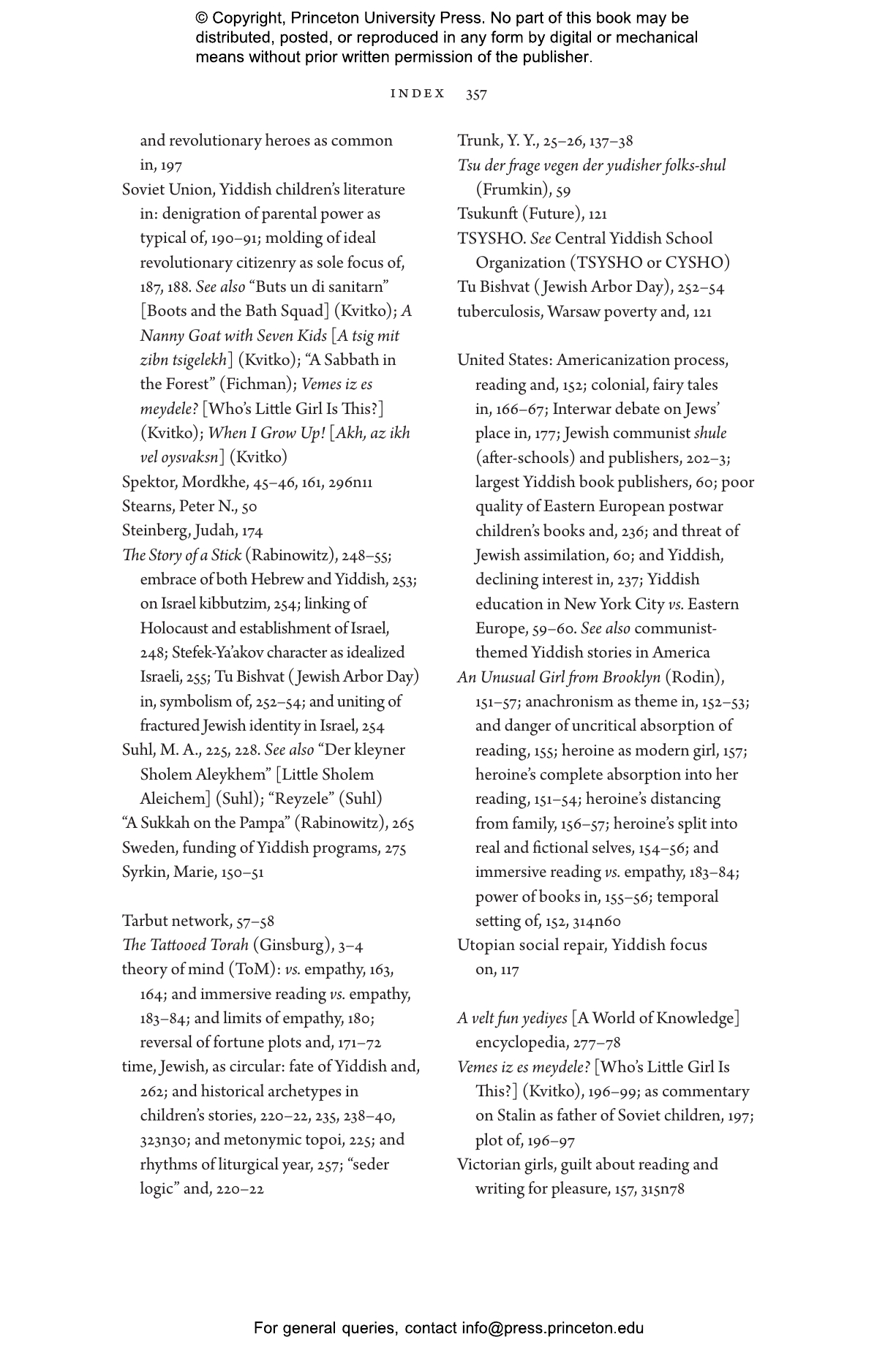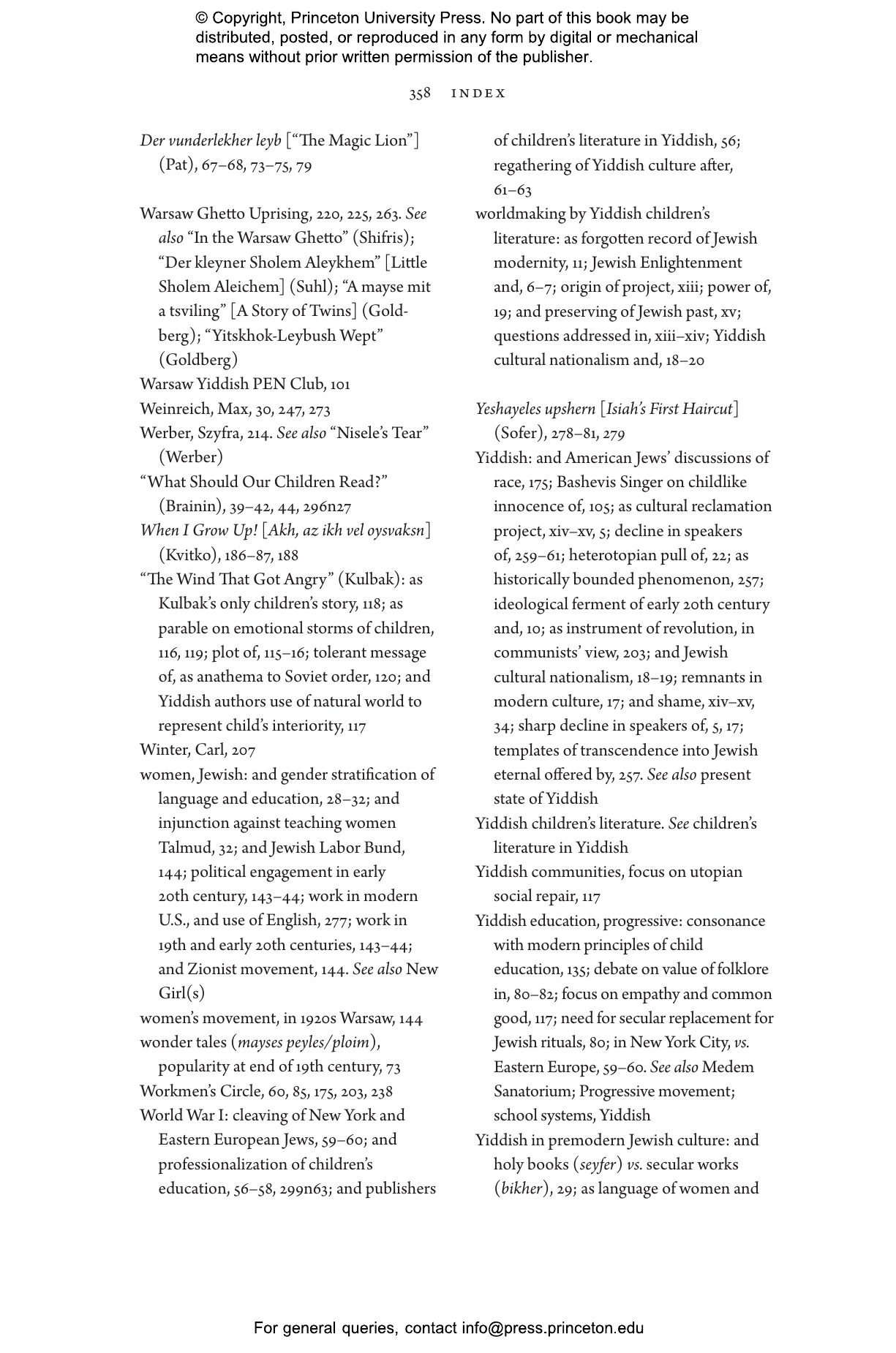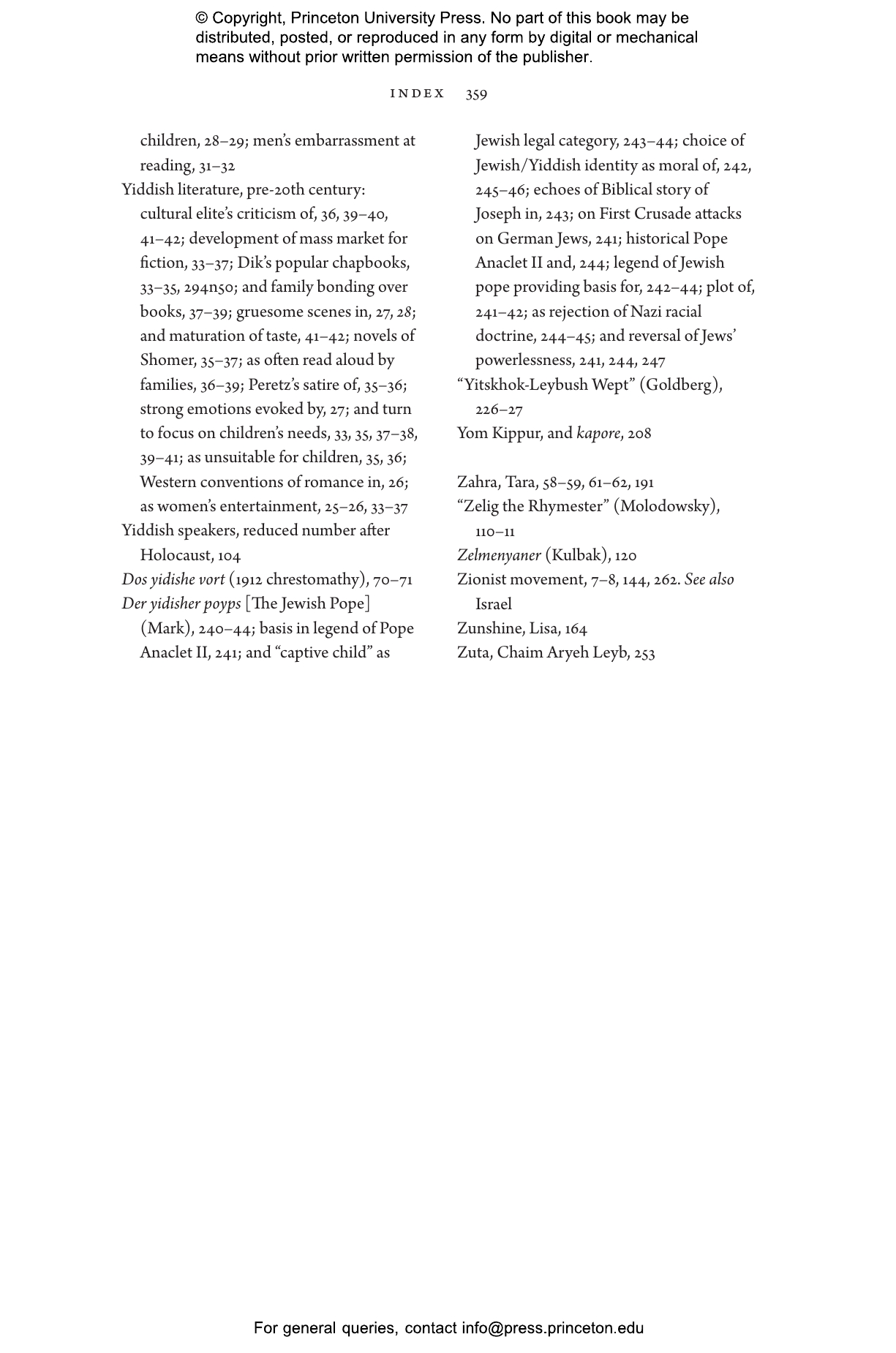As migration carried Yiddish to several continents during the long twentieth century, an increasingly global community of speakers and readers clung to Jewish heritage while striving to help their children make sense of their lives as Jews in the modern world. Miriam Udel traces how the stories and poems written for these Yiddish-speaking children underpinned new formulations of secular Jewishness.
Udel provides the most comprehensive study to date of this corpus of nearly a thousand picture books, chapter books, story and poetry collections, and anthologies. Moving geographically from Europe to the Americas and chronologically through the twentieth century, she considers this emerging canon in relation to the deep Jewish past and imagined Jewish futures before reckoning with the tragedy of the Holocaust. Udel discusses how Yiddish children’s literature espoused political ideologies ranging from socialism to Zionism and constituted a project of Jewish cultural nationalism, one shaped equally by the utopianism of the Jewish left and important shifts in the Western understanding of children, childhood, and family life.
Modern Jewish Worldmaking Through Yiddish Children’s Literature shows how Yiddish authors, educators, and cultural leaders, confronting practical limits on their ability to forge a fully realized nation of their own, focused instead on making a symbolic and conceptual world for Jewish children to inhabit with dignity, justice, and joy.
Miriam Udel is associate professor of Yiddish language, literature, and culture and the Judith London Evans Director of the Tam Institute for Jewish Studies at Emory University. She is the author of Never Better! The Modern Jewish Picaresque and the editor and translator of Honey on the Page: A Treasury of Yiddish Children’s Literature.
33510
“In this thrilling, absorbing study of twentieth-century Yiddish literature for children, Miriam Udel shows us a wide-ranging vision of what the Jewish world hoped for its future. Yiddish-speaking thinkers and artists from across the globe and across the political spectrum whipped up diverse narratives depicting both a beautiful new world and the world that is, in all its grimness. Udel introduces us to Yiddish as nothing less than a medium for revolution. This book is a prodigious achievement.”—Marjorie Ingall, author of Mamaleh Knows Best: What Jewish Mothers Do to Raise Successful, Creative, Empathetic, Independent Children
“A stunningly original contribution to the study of modern Jewish history and culture. This book calls us to rethink the dominant paradigm of Yiddish as part of a lost and vanished world, instead reminding us of the possibility of returning, through reading, to the time before the near-extinction in the Nazi genocide, when Yiddish culture was burgeoning with a sense of possibility.”—Leslie Morris, author of The Translated Jew: German Jewish Culture Outside the Margins
“In these pages, Miriam Udel breathes new life into an old corpus of long-neglected Yiddish children’s literature. What propels this study are the Yiddish tales themselves, stories of demons and dreidels, free challahs for Shabbat and birds that go on strike. We meet children with magical powers and no powers at all. Udel’s writing is as fresh and charming as the Yiddish stories themselves. There are delights here for the scholar and the lay reader alike. A sheynem dank, Miriam Udel.”—Ari L. Goldman, author of The Search for God at Harvard
“A monumental achievement. Udel demonstrates that Yiddish children’s literature offers a new vantage point through which to understand modern Jewish literature and culture. This beautifully written book is by turns moving, lyrical, and down-to-earth, a masterwork that is likely to become a classic in Yiddish studies and beyond.”—Jessica Kirzane, editor in chief of In geveb
“Udel provides rich and insightful interpretations that reconstruct the cultural environment in which modern Yiddish children’s literature was created and read, drawing on extensive research and a deep understanding of the literature itself.”—Yael Darr, Tel Aviv University


